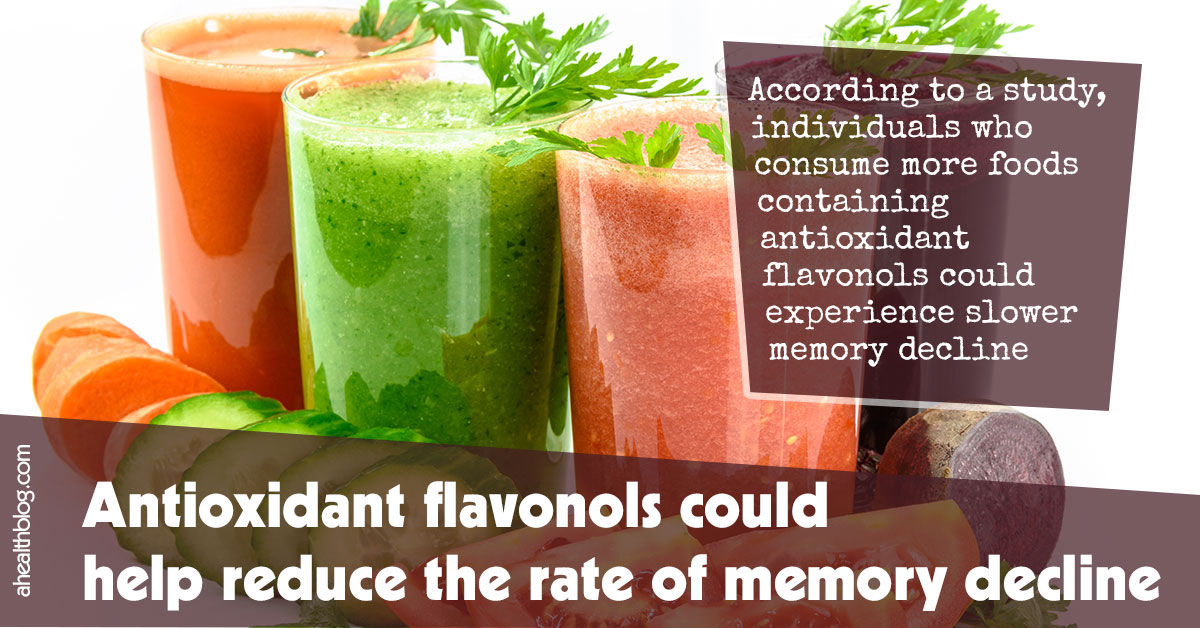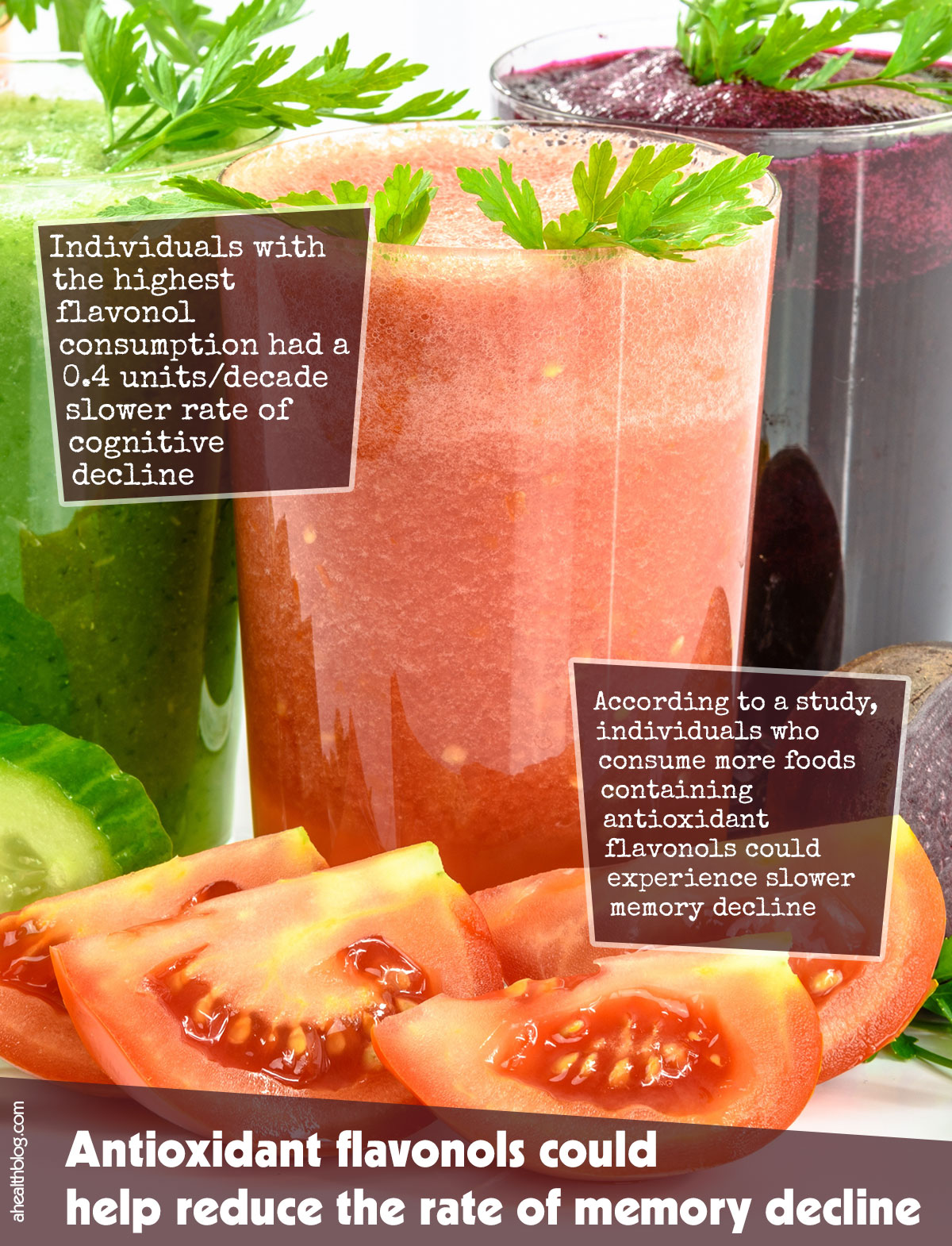According to a study, individuals who consume more foods containing antioxidant flavonols found in various vegetables and fruit and also wine and tea could experience slower memory decline.1✅ JOURNAL REFERENCE DOI: 10.1212/WNL.0000000000201541
The research involved 961 individuals without dementia aged 81 years old on average. A questionnaire on how often specific foods were consumed was completed each year. Annual memory and cognitive tests were also completed which included remembering word lists and numbers, and placing them correctly in order.
Their education level, the amount of time spent performing physical activities, as well as the amount of time spent performing mentally engaging activities which included playing games and reading was also reported. They were monitored for 7 years on average.
The individuals were split up into 5 equal groups according to the amount of flavonols in their diets. Although the average individual’s amount of flavonol consumption is approximately 16 to 20 mg a day, the participants had a dietary consumption of total flavonols of about 10 mg a day on average.
The lowest consumption group consumed approximately 5 mg a day with the highest consumption group consuming 15 mg a day on average; which is equal to approximately 1 cup of leafy greens.
To establish cognitive decline rates, the study made use of a cognition score that summarized 19 different cognitive tests, with scores ranging from 0.5 for individuals who had no thinking issues to 0.2 for individuals who were mildly cognitively impaired to -0.5 for individuals with Alzheimer’s.
After other factors were adjusted for that could impact the memory decline rate, which included smoking, sex, and age it was revealed that individuals with the highest flavonol consumption had a 0.4 units/decade slower rate of cognitive decline compared to individuals with the lowest flavonol consumption.
The flavonol class was also separated into the 4 constituents: isorhamnetin, myricetin, quercetin, and kaempferol. The main food contributors for each group were: broccoli, spinach, tea, beans, and kale for kaempferol; tea, apples, kale, and tomatoes for quercetin; tomatoes, oranges, kale, wine, and tea for myricetin; and tomato sauce, wine, olive oil, and pears for isorhamnetin.
The cognitive score of individuals with the highest consumption of kaempferol declined at a rate of 0.4 units/decade slower in comparison to individuals in the lowest consumption group. The cognitive score of individuals with the highest consumption of quercetin declined at a rate of 0.2 units/decade slower in comparison to individuals in the lowest consumption group.
The cognitive score of individuals with the highest consumption of myricetin declined at a rate of 0.3 units/decade slower in comparison to individuals in the lowest consumption group. Dietary intake of isorhamnetin wasn’t associated with overall cognition.
Although the study demonstrates a connection between higher flavonol consumption and slower rate of cognitive decline it doesn’t prove that a slower of cognitive decline rate is a direct result of flavonol intake.
A limitation of the research was that the participants self-reported their food frequency, so they might not have accurately remembered what they consumed.




